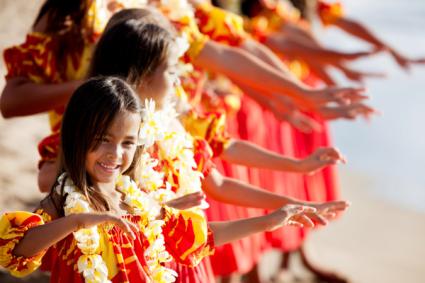< Back to all interventions for Treatment of Alcohol Use Disorder
I Mua Mau Ohana
Hawai’ian culturally rooted residential treatment program.
I Mua Mau Ohana is a long-term residential treatment program grounded in Native Hawai’ian values. The treatment has five components: (1) experiential learning/therapy including culturally rooted activities, (2) substance use education, (3) spiritual component including cultural values and practices, (4) counseling services, and (5) intensive family involvement. The mean time in treatment was 171.7 days but dropout rate was high (51.3%). There were improvements in alcohol and substance use cessation, decreased criminal justice involvement, and education and employment at follow up.

Outcomes
Decreased alcohol use during and after treatment.
There was decreased alcohol use, along with improvements in alcohol and substance use cessation, decreased criminal justice involvement, and improved education and employment outcomes at follow-ups (e.g., 3-, 6-, and 12-month follow-ups).
Costs
Set up and ongoing costs high due to residential staffing needs.
Long-term residential treatment programs incur a high level of financial investment.
Cultural Engagment
Strength is inclusion of cultural concepts.
Cultural concepts were prominent in 3 of 5 modules. There is description of how culture is integrated throughout the intervention, including inclusion of spirituality, family values into treatment and experiential outdoor learning activities.
Participants
Adolescent, Young Adult; Native, Non-Native; Female, Male
Setting
Clinical/Healthcare
Delivery
Individual, Small Group, Medium Group, Multi-level, Face-to-Face
Residential treatment services for adolescent, mostly male Native Hawai’ians.
Participants were 250 adolescents, 13-18 years old, 64% Native Hawai’ian and 68.4% male. Treatment was provided in a long-term residential setting plus therapeutic home visits by staff after program completion.
Staffing Needs
Certified Professional
Numerous service providers with high level of education and training.
Initial assessment requires a certified substance use counselor, and the psycho-education and outdoor sections require educators. The level of education/credential for the therapists was not specified.
Research Design
Pre-/post-intervention data
Developmental stage of research
Early stage will need fine tuning.
This is an early stage of research on this culturally grounded program. The investigators suggest further refinement including standardization and measurement of the impact of the cultural activities and a more rigorous controlled design.
Potential
Program shows promise for integration of cultural concepts into residential treatment.
Even though the program is expensive, the feasibility of integrating cultural concepts into residential treatment was demonstrated.
References
Kim RJ, Jackson DS. Outcome evaluation findings of a Hawaiian culture-based adolescent substance abuse treatment program. Psychol Serv. 2009;6(1):43-55. https://psycnet.apa.org/fulltext/2009-01792-005.html. https://doi.org/10.1037/a0014750.
< Back to all interventions for Treatment of Alcohol Use Disorder

